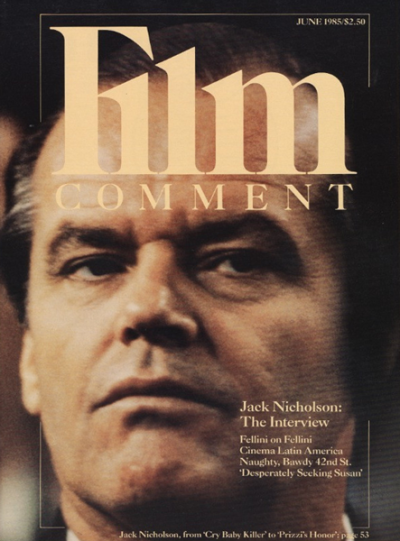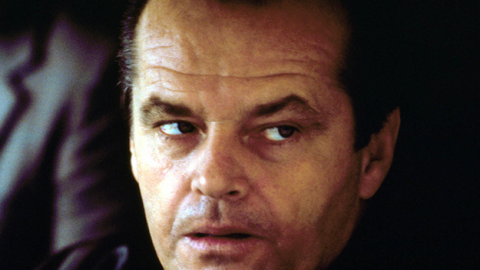‘DESPERATELY SEEKING SUSAN’
It took a young director from the film fringe (Susan Seidelman), a neophyte screenwriter (Leora Barish), and a cinematographer who’d worked with Bertolucci and Herzog (Edward Lachman) to come up with the year’s smartest, best-looking 1935 screwball comedy based on a Jacques Rivette movie. Dan Yakir talks with all three.
FELLINISSIMO!
Master fabulist, eternal child of the cinema, progenitor of the word (and the world) “Felliniesque;” Federico Fellini will be feted by the Film Society of Lincoln Center on June 7. In an engaging conversation with Gideon Bachman, the all-time Hall of Famer elaborates on the dreamscape that, because of him, we all inhabit.
MIDSECTION: LATIN AMERICA
Mexico staggers toward bankruptcy; El Salvador struggles for its soul; Fidel Castro schmoozes with Ted Turner. Time for a Latin American Midsection. So, two views on Mexico, from Hollywood (David Thomson) and from the troubled inside (Leonardo Garcia Tsao). An assessment of progressive films on the region (Carol Cooper). And a trio of takes on Cuban film: how a 23-minute documentary spurred an artistic exodus (G. Cabrera Infante); a potpourri of Cuban and hispanic works at the Miami Film Festival (Emilio Fernandez); and a review of six films from within the Cuban revolution (Pat Aufderheide).
42ND STREET OR BUST
In 1980 a company bought one building on Times Square and five years later sold it for a 1000-percent profit. With “redevelopment” in the air, the face of 42nd Street is changing—but will it have the scars removed, or simply lose its character? Brendan Gill outlines the crisis; Bill Landis sketches some of the people to be affected; and David Thomson (in an excerpt from his new book Suspects) imagines the reactions of a back-home father to a son’s life spent on the Deuce.
JOURNALS
While in Germany, Harlan Kennedy refused to visit Bitburg Cemetery; he did stop off at the Berlin Film Festival, though. Jim Verniere spends a day with the dead, George Romero-sryle. Michael Sragow finds parallels between Witness and <em>Violent Saturday, a Richard Fleischer film of 30 years’ vintage.
FUTURE IMPERFECT
Since Méliès, filmmakers have used the camera lens to crystal-ball the future. Sometimes it works, sometimes it doesn’t. You’ll learn stuff from Marc Mancini’s fine essay.
WHO’S WHO IN BUDAPEST
A delirious political allegory from Istvan (Mephisto) Szabo, a fistful of films with Jewish themes, and the promise of a Miklos Jancso rockumentary highlight J. Hoberman’s trip this winter into the Hungarian cinema.
JACK NICHOLSON INTERVIEW
Rebel, exemplar, survivor, rebel. After 27 years in film, Nicholson can still amuse and astonish. In Prizzi’s Honor, his new film , he finds a new dimension for his sleek menace. And in a rare and revealing interview with Beverly Walker, the actor-writer-director looks back (and forward) on a lifetime of challenges.
OBJECTS OF DESIRE
Men look at women; the camera looks at objects. Facts of life or cinema conspiracy? Marcia Pally calls for a new meta-physics.
HOLLYWOOD 2000
President Stallone? Pope John Travolta? You read it here first. And Paul Budra and Graham Yost wrote it.
TELEVISION: ‘GREEN ACRES’
Armond White likes it better than Places in the Heart. Honest.
Back Page: Quiz #13
Boys and girls together.





